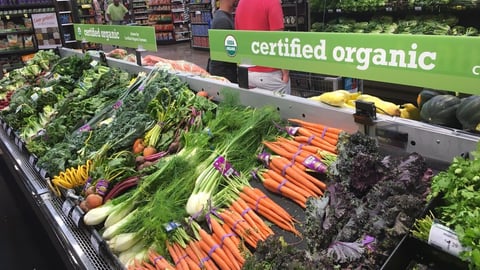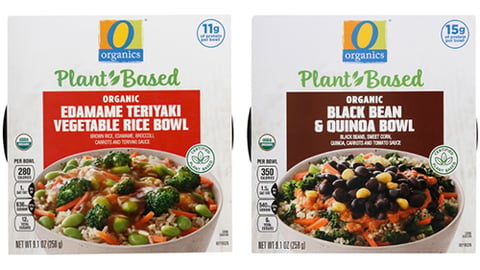1st-Ever Plant-Based Meat Labeling Standards Unveiled
The Plant Based Foods Association (PBFA), a trade association representing more than 160 plant-based food companies, has released the first-ever standards for labeling plant-based meat alternatives. The aim of the voluntary standard is to promote consistency in labeling across the plant-based meat category, which grew by more than 10% last year at grocery.
“As consumers increasingly seeking out plant-based meat options, the Plant Based Foods Association is leading the way by promoting a labeling standard that suggests clear labeling terms that consumers understand,” said Michele Simon, executive director of the San Francisco-based organization.
The meat alternative standards allow for references to the type of animal meat being emulated (i.e., “meat, “chicken,” “hamburger,” etc.) and the form of the product (i.e., “nuggets,” “burger,” etc.) as well as a qualifier clearly indicating that the product is plant-based or vegetarian. These qualifiers include “plant-based,” “vegan,” “meatless,” “meat-free,” “vegetarian,” “veggie,” “made from plants”. The full standards document is available on PBFA’s website.
PBFA’s plant-based meat standards committee featured representatives from member companies Beyond Meat, Hungry Planet, Lightlife and Field Roast, Morningstar Farms, No Evil Foods, Tofurky, and Upton’s Naturals.
In addition to crafting voluntary labeling standards, such as the ones it issued last year for plant-based milks, PBFA is engaged in such policy battles as lobbying against The Real MEAT Act, which would codify the definition of “meat” for labeling purposes, require the use of “imitation” on plant-based meat labels and expand jurisdiction of the labeling of plant-based foods to the USDA if the FDA fails to act. The organization has also been fighting state labeling restriction bills in Mississippi, Wisconsin and elsewhere.






